Essential oils are a natural alternative to toxic chemicals found in conventional cleaning products. Selecting quality essential oils from a reputable brand is important for the best results. This guide will help you choose the best essential oil brands for cleaning your home. You’ll also learn where to purchase quality oils at an affordable price.
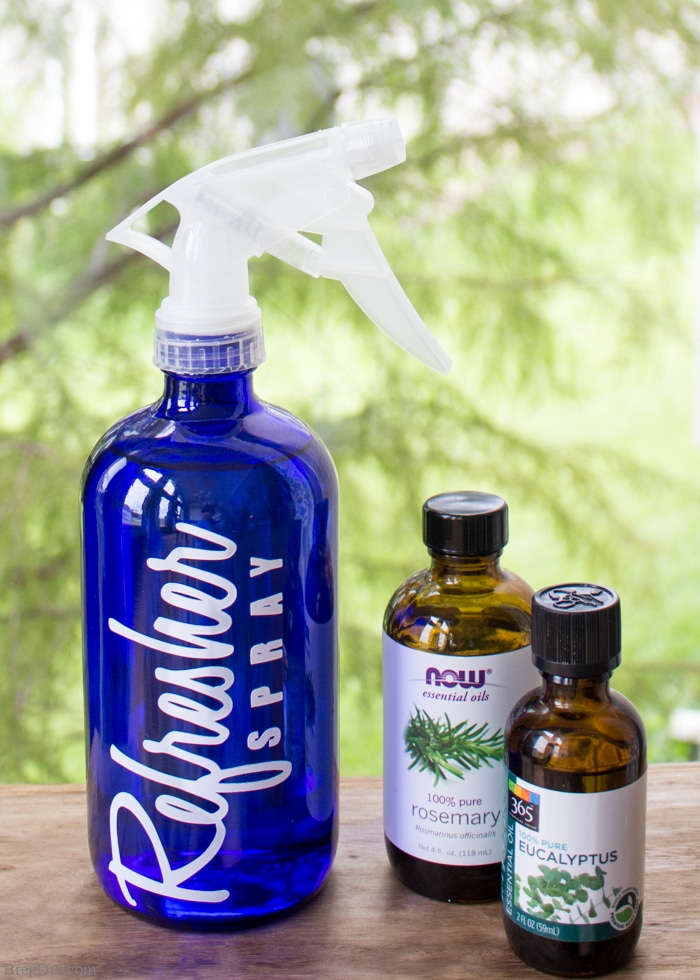
Disclosure: This post contains affiliate links, which means I get a small commission if you decide to purchase through my link, at no cost to you. The products I link are ones I use and believe in. For more info, read my Policies & Disclosures.
—
After 8 years of writing about green cleaning, I have a love-hate relationship with artificially scented products…
They smell delightful, but I’m well aware of the toxic fragrance chemicals they contain.
Still, the temptation to indulge in fragranced room sprays or scented candles is hard to resist. I catch myself lingering in the candle aisle, savoring the scents.
Luckily, there’s a healthier alternative: essential oils.
If you’re a scent lover, it’s time to try cleaning with essential oils. These concentrated plant extracts have pleasant aromas and antibacterial/antifungal properties, making them great for home cleaning and scenting.
This article will discuss the qualities to look for in an essential oil company, the brands that strike the perfect balance between quality and affordability, and where to purchase oils for an affordable price.
Identifying Your Needs
Using essential oils instead of toxic fragrance chemicals is a healthier, more environmentally friendly approach to home care. But before you immerse yourself in the vast world of essential oil options, take a moment to identify your specific needs. What’s the primary reason you want to purchase essential oils?
- For making DIY cleaners, such as room spray look for an affordable, reputable brand offering 100% essential oils that smell great.
- For topical application or aromatherapy, such as facial oil cleansing, prioritize third-party testing and purity reports for safety and effectiveness.
Note: This article focuses on essential oils for home cleaning and scenting; consult a certified aromatherapist or medical professional for topical or aromatherapy usage.
How to Tell Essential Oils from Synthetic Fragrance Oils
Essential oils are concentrated plant extracts distilled or pressed from the leaves, flowers, roots, bark, rind or fruit of a plant. They are easy to confuse with synthetic scents sold in similar bottles.
Distinguishing between essential oils and fragrance oils is crucial for effective and safe cleaning. Here are a few clues you’re purchasing natural, plant-derived essential oils:
- Packaging – Essential oils are sold in small amber-colored bottles that protect the oils from UV rays. Standard bottle sizes include 10mL (0.3 ounce), 30 ml (1 ounce), and 100ml (3.3 ounces).
- Labeling – Essential oil labels clearly state “100% Essential Oil” and contain the botanical name of the plant the oil is derived from. If the label says, “Fragrance Oil,” it contains at least one synthetic ingredient and is not an essential oil.
Does the Brand Really Matter?
Once you’ve determined the product you’re purchasing is 100% essential oil, does it matter which brand you select? Aren’t generic green beans as good as name-brand green beans but cheaper?
It’s not quite as simple with essential oils.
The essential oil market has been flooded with options in recent years. With so many choices, it’s hard to tell which companies are selling good-quality oils and which are not. Identifying a trustworthy brand can help you avoid regulation pitfalls and unethical industry practices:
- There is little regulation of essential oils in the US. The FDA regulates cosmetics and drugs, but essential oils, herbs, and supplements do not fall under their jurisdiction. The FTC regulates advertising claims if oils are marketed as a treatment for a disease or illness. Otherwise, companies can say whatever they like.
- No official essential oil grading standards exist. In the US, the government inspects and grades products such as meat for quality and usability. No government organization or independent body grades or inspects essential oils. You may see terms such as “pure therapeutic grade” on essential oils, these “grades” or “certifications” are marketing terms used to influence consumers’ perception of the item’s quality and sell more oils.
*Third-party certifications like Good Manufacturing Process (GMP) Certification, FairTrade, or Leaping Bunny Cruelty-Free indicate ethical practices, not quality. Oils can be USDA Certified Organic. - Misleading marketing tactics are used to sell products. Some companies sell synthetic fragrance oils in bottles that look like essential oil bottles or dilute pure essential oils with cheaper “carrier oils” without clearly labeling the product as a blend.
How to Choose the Best Essential Oil Brands for Cleaning
When choosing essential oils, consider factors beyond the brand name. You don’t have to purchase the most expensive oils; you just need to ask a few questions before buying:
- Are the labels easy to understand? Product labels should be easy to read and contain a detailed description of contents, plus safety and usage information.
- Is the company website easy to navigate? It should be easy to locate relevant information, such as the oil description, directions for use, and purity test reports (GC/MS – gas chromatography /mass spectrometry).
- Does the company provide detailed safety information? Websites and pamphlets should provide comprehensive safety advice, including precautions for handling, guidelines for proper storage, and emergency procedures in case of accidental exposure or ingestion. Some companies go the extra mile, including chemical Safety Data Sheets (SDS).
- Does the company lay out usage guidelines and restrictions? Companies should provide clear usage instructions. These include warnings never to apply undiluted on the skin, not ingest without medical guidance, use caution during pregnancy, and avoid certain oils on children and pets. Guidelines may extend to patch testing for allergies and FDA disclaimers.
- Bonus: What’s their customer service like? Reputable companies often offer educational resources and reliable customer support to answer questions about their essential oils.
Quality Brands for Cleaning
For those ready to elevate their essential oil game, we recommend two reputable brands — Plant Therapy and Rocky Mountain Oils — they offer a balance of quality and affordability for cleaning and/or home scenting.
Learn more about each brand, including their quality, usage, safety information, educational resources, pricing, and where to buy.
1. Plant Therapy
Plant Therapy offers a wide range of essential oils, blends, personal care, and home scenting products.
Quality — Plant Therapy provides third-party GC/MS test reports online, is Leaping Bunny cruelty-free certificated, and offers some certified USDA Organic oils.
Usage and Safety Information — Plant Therapy bottle labels provide detailed dilution rate information, ingredients, and cautions for use. Product information sheets with dilution and usage information and Safety Data Sheets (SDS) are available on the sales pages of each oil. PDF documents outline kid, pet, and pregnancy-safe oils.
Education Resources — Plant Therapy offers abundant educational content on its blog, Instagram account, and website.
Pricing — Plant Therapy sells reasonably priced oils; 1/3 ounce (10 mL) of Lemon Essential Oil is about $9. If you order through their website, they offer free shipping (no minimum required) and a rewards program.
Where to Buy — Plant Therapy oils are sold via their website and on their Amazon storefront (for an increased price).
2. Rocky Mountain Oils
Rocky Mountain Oils offers a wide range of essential oils, essential oil blends, and accessories such as diffusers and wool laundry balls. They are working toward 100% recycled packing materials.
Quality — Rocky Mountain Oils provides third-party GC/MS tests and includes a unique batch number on each bottle for easy look-up. They offer some certified USDA Organic oils.
Usage and Safety Information — Rocky Mountain Oils bottle labels contain product information, recommended use, ingredients, and use precautions. Product information, safe usage, recipes, and cautions are available on the sales pages of each oil. The site has recommendations for using EOs with kids and oil dilution.
Education Resources — Rocky Mountain Oils provides adequate educational information on its blog and website, DIY projects, and a substitution guide to replicate DoTerra and Young Living blends.
Pricing — Rocky Mountain Oils sells reasonably priced oils; for example, 1/3 ounce (10 mL) of Lemon Essential Oil is about $10 (about $1 more than Plant Therapy). They offer a rewards club, free shipping ($15 minimum), and a monthly membership.
Where to Buy — Rocky Mountain Oils are sold via their website and on their Amazon storefront (for an increased price).
NOTE: For body care and aromatherapy, I defer to Heidi Villegas a certified aromatherapist and herbalist who recommends Rocky Mountain Oils and Plant Therapy.
Affordable Brands for Cleaning
For those on a budget, NOW and Aura Cacia offer affordable essential oils suitable for cleaning and home scenting. While they may not provide as much testing and education as other brands, they are a decent choice for beginners or those looking for budget-friendly options.
Learn more about each brand’s quality, usage, safety information, pricing, and where to buy.
1. NOW
NOW is a natural food and product manufacturer that sells supplements, health and beauty products, natural foods, essential oils, and more. They have been a popular natural products company for more than 50 years.
Quality — NOW assesses the quality of their essential oils using an in-house purity testing process. They have Leaping Bunny cruelty-free certification and offer some certified USDA Organic oils.
Usage and Safety Information — NOW provides general usage recommendations and FAQs for using essential oils with children, while pregnant, near pets, and ingesting EOs online. They recommend consulting a professional essential oil reference book or practitioner for usage guidelines and dilution ratios.
Pricing — NOW sells extremely affordable essential oils; for example, 1 ounce (30 mL) of Lemon Essential Oil is about $6.50 (half the price of Plant Therapy or Rocky Mountain Oils). They offer free shipping with a $50 purchase.
Where to Buy — NOW Essential oils are sold via their website , at natural grocery stores, online stores such as Vitacost and iHerb, and at their Amazon storefront (for an increased price).
2. Aura Cacia
Aura Cacia offers a wide range of essential oils, oil blends, personal care products, natural cleaners, and essential oil accessories. Their oils have been sold in natural food stores and co-ops since 1982. They are a member-owned co-op dedicated to ethical and sustainable practices, plus each purchase supports organizations that help women transform their lives.
Quality — Aura Cacia tests the quality of their essential oils in-house and publishes the gas chromatography/mass spectrometry GC/MS reports on their website. They offer some certified USDA Organic oils.
Usage and Safety Information — Aura Cacia provides some usage guidelines, diffuser usage information, information about dilution, and safety overviews online but could improve this information.
Education Resources — Aura Cacia provides basic overviews of some individual essential oils, information about pets, and warnings about ingesting EOs on their blog, but could improve this information.
Pricing — Aura Cacia sells extremely affordable essential oils; for example, 0.5 ounce (15 mL) of Lemon Essential Oil is about $6.25 (1/3 the price of Plant Therapy or Rocky Mountain Oils). They offer free shipping with a $50 purchase.
Where to Buy — Aura Cacia Essential Oils are widely available. They are sold via their website, at grocery stores, on online stores such as Vitacost, and at their Amazon storefront (for an increased price). They also offer a store locator for finding oils in your area.
Where to Purchase Essential Oils for Cleaning
There are many physical and virtual locations where you can purchase essential oils. You can buy from:
- Oil Suppliers / Manufacturers – Many companies sell their essential oils through their online platforms. They are a great place to get oils at affordable prices (no middleman means less markup). The downside is you may have to pay for shipping and wait for delivery.
- Discount Stores – Many big box stores like Wal-Mart and Target sell essential oils. Their oils can be an affordable choice for home cleaning. Stick with a reputable brand and check the ingredients of each oil to ensure you’re getting 100% essential oils, not artificial fragrance oils.
- Grocery Stores – Natural grocery stores and co-ops can be a great place to find quality essential oils for home cleaning if you shop where lots of oils are sold. If there is little oil demand at a particular store, find a retailer with more product turnover for fresher oils.
- Online Marketplaces – Virtual marketplaces such as Amazon sell lots of essential oils. They are a convenient, affordable option and deliver products quickly. If you’re shopping an online marketplace, find the storefront of a reputable brand so the oils are authentic. Avoid random resellers.
- Multi-Level Marketing Distributors (MLM Companies)– Several well-known essential oils companies (DoTerra & Young Living) are MLMs that sell through independent “distributors” or “advocates.” These oils may be priced higher because several levels of sellers profit from the sale. This doesn’t mean the oils are bad, but quality oils are available at a lower cost.
Related Posts
Want to learn more about cleaning with essential oils? Check out these great articles:
Here’s the bottom line…
You don’t have to pay high prices or join a club to get high-quality essential oils! Education-focused brands such as Plant Therapy and Rocky Mountain Oils offer a balance of quality and affordability while legacy retailers (who have sold essential oils for decades) such as NOW and Aura Cacia offer basic oils at bargain prices. These brands can be purchased online, at big box stores, or even the grocery store, making them a good choice for learning to clean with essential oils.


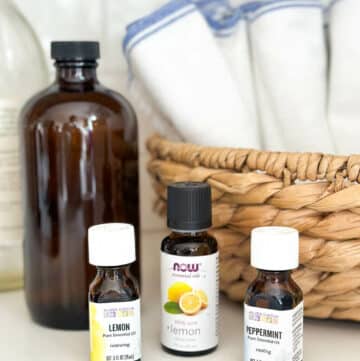
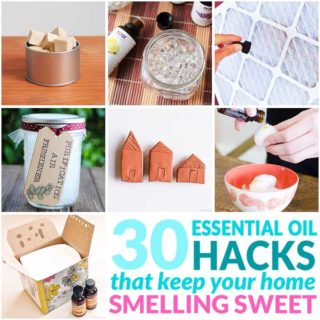
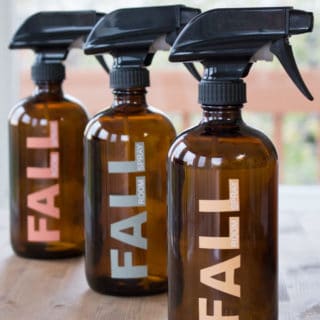
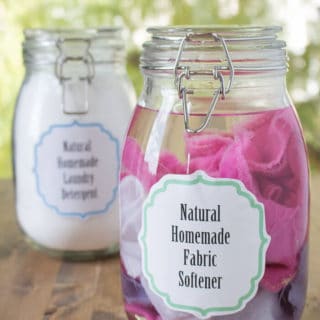
Leave a Reply